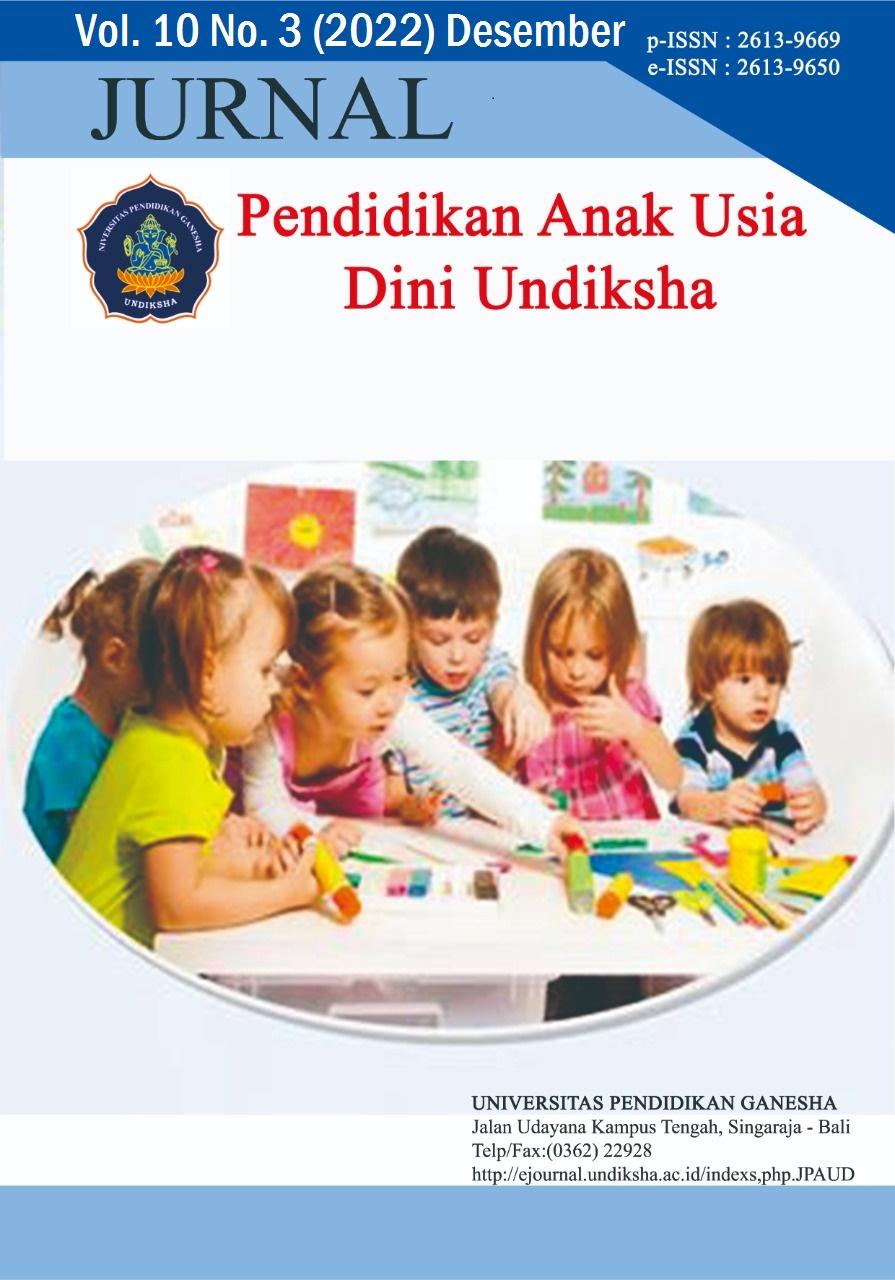Utilization Experiential Learning for Increase Quality Character Development of Child's Language in Communication Verb
DOI:
https://doi.org/10.23887/paud.v10i3.55934Keywords:
Experiential Learning, Character, QualityAbstract
Language character of students is the lack of verbal communication between students educate one with other, child still quiet type and seldom communicate direct with friend his age. Media experiential learning trusted be able to grow flavor believe self child and interest child in initiate direct communication with their peers. This study aims to analyses the application of experiential learning based on preloved (used goods) for students' linguistic abilities. The method used in this research is a phenomenological approach. This research was conducted on children in group A in one of the kindergartens involving 16 children in total. This research is a classroom action research, the problems studied will be solved through the use of experiential learning. The data collection methods used are observation, interviews and experimental studies. The results of this study found that through the use of experiential learning can improve language skills especially in communicate by direct (verbal) on child group A in one of the kindergartens. It is indicate the effectiveness of the experiential implementation learning in improving the quality of children's language character development in verbal communication.
Published
How to Cite
Issue
Section
License
Copyright (c) 2022 Yani Supriani, Usep Sholahudin, Giyanti

This work is licensed under a Creative Commons Attribution-ShareAlike 4.0 International License.
Authors who publish with the Jurnal Pendidikan Anak Usia Dini Undiksha agree to the following terms:
- Authors retain copyright and grant the journal the right of first publication with the work simultaneously licensed under a Creative Commons Attribution License (CC BY-SA 4.0) that allows others to share the work with an acknowledgment of the work's authorship and initial publication in this journal.
- Authors are able to enter into separate, additional contractual arrangements for the non-exclusive distribution of the journal's published version of the work (e.g., post it to an institutional repository or publish it in a book), with an acknowledgment of its initial publication in this journal.
- Authors are permitted and encouraged to post their work online (e.g., in institutional repositories or on their website) prior to and during the submission process, as it can lead to productive exchanges, as well as earlier and greater citation of published work. (See The Effect of Open Access)











